|
By Manuel Players: 1 Platforms: PC Have you too been looking for an old-school pirate RPG to fill the void left by classics of the genre like Sid Meier's Pirates or the Uncharted Waters series? Well, I hope so because today we're going to be looking at Caribbean Legend, a newly released open world, pirate RPG that is a spiritual successor to the iconic Sea Dogs series. It's actually a bit more than just a successor, but we'll to that in due course. It's out now in both a paid full version, and a free Sandbox version. It's developed by BlackMark Studio, published by Valkyrie Initiative, and I've spent many hours both playing it, and writing this review. I guess we have a lot to go over, so let's just dive right into it! Caribbean Legend sees you take on the role of young French noble Charles de Maure who heads to the French colony of Martinique, located right in the middle of the Caribbean, after word has been sent that his brother Michel de Monper has been imprisoned. While there is a lot of bad blood between the brothers, to the point where Charles changed his name, they agree to set their feelings aside in order to save their family's reputation. According to Michel, his imprisonment is due to corruption on the highest levels of colonial government and it will take a lot of money to set him free. He tells Charles about a past business partner in the port city of Guadalupe who owes him enough money to set him free. He also had previously commissioned a ship that he then bestows upon Charles so he can easily get to said port city. Nothing is ever that easy though, and you quickly realize that you have to acquire a lot of money in order to get that easy money from Guadalupe. What follows are a series of quests that see you acquire base funds, outfit and man your ship, and even learn the basics of both hand-to-hand and ship-to-ship combat. The plot goes in some interesting places from there, but seeing as the Story Mode is the main section of the game, I'll refrain from giving away too many spoilers of the later sections. While playing as a set protagonist is a hallmark of this series (as in Sea Dogs), I can't help but feel a more blank slate might have been more appealing. It is interesting to unravel the tangled web of connections between Michel and the colonial government, but a true player insert could've easily been used without many changes being made. Still, you can largely ignore the story if that's what you want to do, and there isn't even a lot that ties Charles himself into a lot of what's going on. Of course he's the brother of Michel, but he's a stranger in these parts and you can mold his character as you see fit. This could actually lead me to discussing the game's reputation system, but let's try to keep it simple here. Anyway, while the lack of a true player inset can't be changed here, I hope we see something like it in a follow-up game. That is if we get one of course. Now is as a good a time as any to take a break from the review and discuss the history of Caribbean Legend. While I like to think of the game as a modern take on the formula laid out in Sid Meier's Pirates and the Uncharted Waters series, it actually has a long pedigree all its own. Originally developed by Russian studio Akella, and published by Bethesda, the game Sea Dogs came out in the year 2000. This was followed by a sequel that was retooled during production to become the Pirates of the Caribbean game that was released to tie-in with the movie Pirates of the Caribbean: Curse of the Black Pearl. This was then followed by sequels that used the Age of Pirates name since the Sea Dogs brand was apparently still under Bethesda's control. These games were Age of Pirates: Caribbean Tales in 2006, and Age of Pirates 2: City of Abandoned Ships in 2009. Sometime following the release of those two games, Akella was able to reclaim the Sea Dogs name and released Sea Dogs: To Each His Own in 2012. They then later re-released all these games digitally on places like GOG (where I played them a while back) and Steam, with the Age of Pirates name replaced with Sea Dogs. Another shake-up them occurred that I'm a bit more confused by, but I guess it has caused the current development team, BlackMark Studio, to ditch both the Sea Dogs name and the Age of Pirates name. There was some talk of creating a new game in a modern engine that I followed a while back, but that eventually turned into releasing an updated version of 2012's Sea Dogs: To Each His Own instead. That game is now retitled Caribbean Legend, and our history lesson has now gone full circle. I mention this all for a couple reasons. First up is the fact that I was very confused as to what this game actually was when I first started looking into it, and second because I want to preface what I'm eventually going say regarding the game. Caribbean Legend features a lot of old school mechanics that haven't made the transition to 2024 all that smoothly, but I think judging the game is best done with a bit of context as to why certain aspects of the game are the way they are. That said I won't go easy on the game simply because I find it crazy nostalgic. Anyhow, with that all out of the way, let's get back to the review! I already mentioned character creation a bit earlier, in that you're pretty much stuck playing as Charles de Maure. While that is very much true, there is a lot of customization you can put into each playthrough. Right off the bat I have to tell you that Caribbean Legend is a very hard game. Don't be afraid to set the difficulty to Easy, and adjust everything so you'll have the most casual experience as possible. I did this in my most recent playthrough to see how different things fared from default settings, and I have to say that it actually feels like the more balanced experience. Whether you lower the difficulty or not, the options on the character creation screen are very important as to how you'll progress in the game. While you can't directly alter starting stats or abilities, you can choose a character class, or role, for Charles. These mainly have to do with fighting proficiencies, but some are related to trading as well. This is important as it's very hard to alter these stats in-game. I actually am not totally sure it can be done, though I've seen mention that some of the more difficult quests allow for it. Next up you have the options like Exploration, which slows down the in-game clock and makes it easier to complete quests, tactical or dynamic combat for ship-to-ship battles, which can make combat easier or harder, and even the ability to turn off having to pay your crew monthly wages. (Gotta love capitalism!) It's important to read what each one does carefully (Which you do by hovering over them with the right mouse button.), as they are not very well explained anywhere else in game. Actually, I also have to mention that I wish this game had some sort of manual attached to it. Even if it is just a PDF in the game's files, I'd definitely want to peruse it as this game seems to come from a time when in-game tutorials were not a full replacement to reading the manual. Earlier in the review I mentioned that Charles de Maure is a Frenchman. Caribbean Legend actually features three colonial powers: the French, the Dutch, and the Spanish. You actually can play as the other two countries, but only in the Sandbox Mode. Sandbox Mode is basically the main game, but everything is open to you from the get-go. You can immediately get to piracy, trading, or completing missions. Due to all gameplay options being available right off the bat, it might actually benefit you to play a bit of the Sandbox Mode before tackling the far more railroaded Story Mode. Interestingly though, you can't change the characters in Sandbox Mode. Despite the name, you are stuck playing as three pre-named characters. And yes, the French character is still Charles de Maure. Having to play as set characters stings a bit more here, as the lack of a plot seems perfectly made for a self-insert. There's probably a lot more that can be said about the Sandbox Mode, but seeing as it's currently available as a free standalone release, I think I'll just leave that for another day. When you start the game you can choose to get a direct tutorial, complete with a tour of all the main town locations, or to just go straight into the game. This does actually change the way the story plays out early on, but it's also more of a way to slowly bring you up to speed with things you'll have to know in order to play the game. After meeting with your brother, a long series of quests opens up where you must eventually outfit and man your new ship. I'm not sure if there is any way to streamline this entire sequence of events, but since you'll need the money and items you get from these quests, I guess it's best to just go along for the ride. These opening quests will see you rescue a man's daughter from hostile natives, smuggle wine for some extra coin, rescue a man who is imprisoned due to heavy debt, and more. In the course of events you'll learn about in-game combat (which clunkily uses WASD to move and the mouse buttons to attack), as well as ship-to-ship combat. You'll also go over some important basics like properly supplying your ship, how to successfully recruit officers, and how to use the banking and port systems. While the game does do a good job explaining some of the core mechanics, it does leave a lot of the more esoteric ones out. You learn a lot about how to be a good pirate, but not really how to get ahead by being a more peaceful trader. Things like the complicated system of item stock, changing marketplace rates, ship upgrades, and selling limits, are pretty much left to the player to figure out for themselves. Caribbean Legend also has rather deep crafting and alchemy systems, but you'll most likely have to learn about those online via guides. Actually, I was stuck in game a couple times and had to resort to asking for help in the Steam community section, and the developers themselves actually replied to me. While it can be argued a well-balanced and paced game would've meant I wouldn't have had to do that, I do applaud that level of hands on help. Also, seeing as the tutorial quest section can take anywhere from 3-5 hours to complete, I guess it makes sense that things were left out. Once again though, you can actually ignore the game's main quests, and simply go off adventuring as soon as you outfit your first ship and win your first battle at sea. This isn't recommended for a lot of reasons, but it's worth considering for later playthroughs. Going over all the gameplay mechanics will make this review the length of a novel, and would most likely turn it into a tutorial of sorts, but I just want to leave this section saying that there are a near infinite amount of things to do in Caribbean Legend. It actually can be very intimidating when you first start, and there are a lot of randomized elements that keep each playthrough feeling unique and challenging. You'll probably make a lot of mistakes in your first few hours of gameplay, but that's half the fun of a game like this. I really don't think you're meant to experience the entire thing in just one core playthrough, and this game will most likely charm you enough that you'll eventually see yourself in your second or third run in no time. I know I just said I didn't want to go too much into gameplay, but I want to discuss the ship mechanics a bit more before we move on. I must admit that I was a bit disappointed by the way this game handles sailing, as it's not a simple "leave port and sail off into the seas" kind of thing. When you first board your ship from a small boat you find yourself outside of the bay or port you've just left. You can then use a fast travel option to immediately go to other nearby bays or ports, or open up the map to begin sailing in the greater Caribbean Sea. If you do the latter, the game shifts to a completely different perspective where the in-game clock now moves quite a bit faster to simulate the time it takes to sail from one location to the next. I actually wish that this was the sole sailing mechanic, as the docking sections seem like a needless middle step in the process. Combat takes you to a screen similar to the docking one, but you'll have more control options. While your foes can be anything from pirates, naval fleets, or merchants, your biggest enemy in ship-to-ship combat will probably be the wind. The amount of times I was forced to sail in odd directions to actually move in combat are too numerous to count, though I guess this does add a sense of realism to the conflict. While fighting you can ram ships (not recommended), fire various cannon shots at them, or even board them if the wind conditions are right. I always prefer the latter since you can very easily sink a ship if you're not careful, which wins the battle but leaves you with nothing to show for it. Boarding a ship usually means you can take all its goods, recruit some of the crew, and even take command of the ship if you have an available officer. It makes sense that the entire ship battle system would be important to the game, and I'm glad to say that it's all executed well for the most part. Having my crew block my way when I'm trying to fight the captain of the ship can be a bit annoying at times, but then I guess I can't get mad at the fact that these low-poly sailors are willing to fight and die for me. Also, while you can play much of the game as a simple trader who deals in selling goods from one port to another, there is no way to avoid combat if you want to progress the story. This is where the comparisons to the Uncharted Waters series end, but then again this always felt more in line with Sid Meier's Pirates that those games anyway. I'd be the first to admit that Caribbean Legend isn't exactly the best-looking game out there, some may even call it ugly. I'm not one of those people though, as I find the game's low-poly characters and environments to be rather charming. When I say that this game reminded me a lot of Sid Meier's Pirates (As in the 2004 remake.) I mean that in just about every way, including the visuals. While this is a remake of a game that came out in 2012, the engine it uses is far older than that. This game very much has the look of something that would've landed on PC in the mid-2000s, right around the time of said Pirates game. Surely I can't be the only one who thinks that there's something indescribably pleasing to this style, right? Very often pixel-based graphics steal the show when discussing retro aesthetics, but I think that something similar can be extended to the 2000s take on 3D graphics. These aren't super-blocky PS1-style graphics here, they're more akin to something that would push a PS2 to its limits. I'm reminded of the world of the original Final Fantasy X, but somehow with both better and worse visual elements. Now I'll admit that what I'm describing might be something of an acquired taste, but it's also not like this game will catfish you. You can take a look at the screenshots and trailers and see exactly what you're getting into. In this case that "something" is a series of visuals that I can't help but love. I do want to clarify a bit and remind everyone that the 2000 Sea Dogs game followed at least four other games that all featured better graphics than the game that came before it, so it's not like this is exactly 2000s graphics I'm referencing here. Though I'm willing to bet that there were lots of talk about the games looking like they came from that time period circa their releases, most likely due to the fact that they were build on the same aging engine. Going back to the current release, the developers recently put out some upgraded textures that greatly improve the world map and other areas. I actually did most of the playing for this review before that update, so I was in a unique position to note just how much it improved the original game. Another benefit of this being a game that runs on a rather old engine is that you don't have to worry too much about performance issues. I was able to turn most of the graphics settings to their highest settings, and never looked back. I know it's not correct to say that all modern PCs will have no trouble running this because it's old, but I definitely had no issues at all. Also, many of the bugs that plagued the Sea Dogs version have been addressed here as well. I don't want to make it seem like seeing poorly-framed, flat-textured characters in the middle of a dialogue is the most visually appealing thing ever, but I can't help the fact that I truly enjoyed this game's graphics to the extent that I'd say that they made me ignore most of the game's issues. The score I give them later on in this review may be tinged a bit by way of nostalgia, but I guess that's the pitfall of subjective reviews. During the course of writing this review I found myself going deep into research mode to learn more about it. I joined the game's discor, and even got involved in the Steam community. From there I was surprised to see some complaints that mentioned the soundtrack being of poor quality. I'm not sure if the current Caribbean Legend music is different from the original Sea Dogs version, but I think it fits perfectly. There were some tracks that weren't exactly great, and some that I grew tired of hearing simply due to repetition, but I was digging the vibes throughout. It's a very "Pirates of the Caribbean"-style collection of music, and I personally wouldn't change any of them for any reason. Not to beat the comparison too far into the ground, but it also reminded me a lot of the music you'd find in that 2004 Sid Meier's Pirates remake. That said, I did learn from the community that the game's music tracks could easily be swapped out for others if you're willing to dig into the game's files. While I don't see myself ever doing this, I guess the option is there if you simply can't stand this game's music, or if you just want to make this a Grand Theft Auto type experience where you have your own radio station. While that won't affect the score I gave the music later on, I thought I'd bring it up since the developers promise full mod support later on, and I guess replacing the game's soundtrack is a way you can (sort of) currently mod the game. I actually was actually surprised when I started up the game and noticed that it had voice acting. Now it's not full voice acting, so still expect to do tons of reading, but each character will usually say a line or two at the start of their dialogue tree. These can be things like your brother Michel expressing his thanks for coming across the world to see him, drunkards asking you to join them, prostitutes trying to get you to choose them, or even rude guards telling you to clear the road. There's actually quite a few of these little voice clips, and some of them even appear to be in other language. I can't tell if these "other languages" are just untranslated Russian left in or not, but it at least felt accurate to the setting of the game. The fact that I was sometimes unable to tell what language some dialogue was in actually leads me to the only issue I really had with the sound, and that's its mix. No matter how I adjusted things within the options menu, I could never really get the sound to be at levels I wanted. I'm not sure if this game uses a dynamic volume system, but there were times when I thought I had finally fixed things, only to have characters blow out my speakers during combat. Ultimately this means that while the voice actors gave some decent performances, their lines tended to come out as a muffled, garbled mess due to the muddy mix. Once again it could just be that the characters are speaking a language I'm not familiar with, but I guess I'll never really know. Seeing as this isn't the issue with ALL of the game's dialogue, I guess it's not really too big an issue to dwell on. Overall I have far more positive things to say about the sound than negative. Old school PC games aren't exactly known for their great controls, and I can't help but feel that Caribbean Legend suffers from this trope more than others. While I understand that this game is built upon a very old engine, the original Sea Dogs: To Each His Own isn't exactly that old of a game. I can't imagine the controls being any better back in 2012, but I do wish that they were updated or streamlined for this version. Don't even think about being able to play this with a controller, as dozens of keys are used for different actions. Admittedly many of these are hotkeys, but there were times when I was hitting every single key on the keyboard until I stumbled onto the command I wanted. There is a way to see the controls in the options menu, but seeing as they are split between the game's three control schemes (land, ship, and combat) I was instantly overwhelmed. I'd imagine there has to be some way to squeeze most of these into fewer options, like a more nuanced menu button or something, but be prepared to remember dozens of commands to play the game. Over a dozen hours in and I still don't think I fully understand the controls in combat, both on land and sea. I will admit that things do become more manageable over time, but that learning curve is very tough. While there are a lot of aspects of Caribbean Legend that feel like they come from a gaming landscape that is two decade old, controls are the only thing that I feel have actually aged in a pretty detrimental way. There are countless hours of gameplay in Caribbean Legend. The Story Mode alone can take dozens of hours to complete your first time through, and there's lots of different ways to go about the game on subsequent playthroughs. Chances are you'll screw up a lot of missions, miss certain scenes just through ignorance, or even lock yourself out of content by leveling up too quickly, so future playthroughs are all but a requirement. There's enough variety here that no two games will ever truly be the same, and there are more than enough customization options to offer still more changes and challenges. I actually started a new playthrough now that I have an understanding of the game's mechanics, and I'm already experiencing many differences in this playtrough versus the one I based much of this review on. I actually think I'll come back after I've put in a hundred hours or so and give this a sort of "final" review. I also think that the game will have more updates by then, so I guess that's an idea worth exploring later on. Back to replayability, I haven't really talked about the Sandbox Mode much, but that's mainly because it's currently available as a free standalone title on Steam. Even though I think this is just as important as the main Story Mode, you can get what is essentially half the game for free. Considering that Caribbean Legend's current price is set at $29.99, I can't help but feel that the price would feel better if a decent chunk of the game isn't available for free. While I do think that the Story Mode is worth the current asking price, I can't help but feel that the developers devalued their own release with the free Sandbox Mode. Recommending Caribbean Legend is a bit tough, as there are many players that won't want to pick it up for some rather obvious reasons. It's a very old school game in both looks and gameplay, and it takes a certain type of gamer to overlook those "flaws" and see the amazing game underneath. Also, as the game is essentially an updated release of Sea Dogs: To Each Their Own, there are some that might have already experienced all they cared to from that version. I guess I'll have to say that if you're a fan of Sid Meier's Pirates, the Uncharted Waters series, or just like old school style PC RPGs in general, then you're most likely to enjoy Caribbean Legend as much as I have. I can't wait to see what other additions make it into the game as the developers promise more updates. I also hope that the modern follow-up they've also hinted at gets a full release sooner than later. While we'll all have to wait on that, Caribbean Legend is more than enough to fill that void. Anyway, seeing as I'm done here, I guess I'll return to the high seas. See you there! Check Out Caribbean Legend on Steam https://store.steampowered.com/app/2230980/Caribbean_Legend__Pirate_OpenWorld_RPG/ Story: B Gameplay: B Graphics: B+ Music/Sound: B- Value: B Overall: B Pros: + An open world, old school pirate RPG in the vein of Sid Meier's Pirates and the Sea Dogs series. (The latter making sense since this is a direct follow-up.) + Features an impressive amount of content, and several different customization options that change how the game is played. + The core Story Mode offers a lot of challenge, but it can also be adjusted for new players, or those just looking to explore the game's world. + The Sandbox Mode pretty much makes this game infinitely replayable. + While the graphics aren't anything close to state of the art, their 2000s aesthetics have a certain charm to them. + Very affordable all things considered, and the Sandbox Mode is available as a free download. + Taking on the role of a pirate is always fun! Cons: - The tutorial is rather long and still manages to leave out important gameplay elements. - There are tons of small bugs, untranslated text, and anachronistic dialogue throughout the game. - The music can be very hit or miss, as is the voice acting. - Difficulty and RNG can be all over the place at times. It's best to save often, and in different slots. - Feels more like an Early Access game at the time of this writing, albeit an Early Access game that's very close to completion. A copy of this game was provided to us free-of-charge by the publisher for the purpose of this review. This did not affect our review in any way. #CaribbeanLegend
0 Comments
Leave a Reply. |
Search
Contributors◆ Angie
◆ Emily ◆ J.D. ◆ Janette ◆ JT ◆ Manuel ◆ Nestor ◆ Rose ◆ Sylvia ◆ Teepu ◆ Tiffany ◆ Winfield Archives
April 2025
|
© 2014-2025 A-to-J Connections. All Rights Reserved.


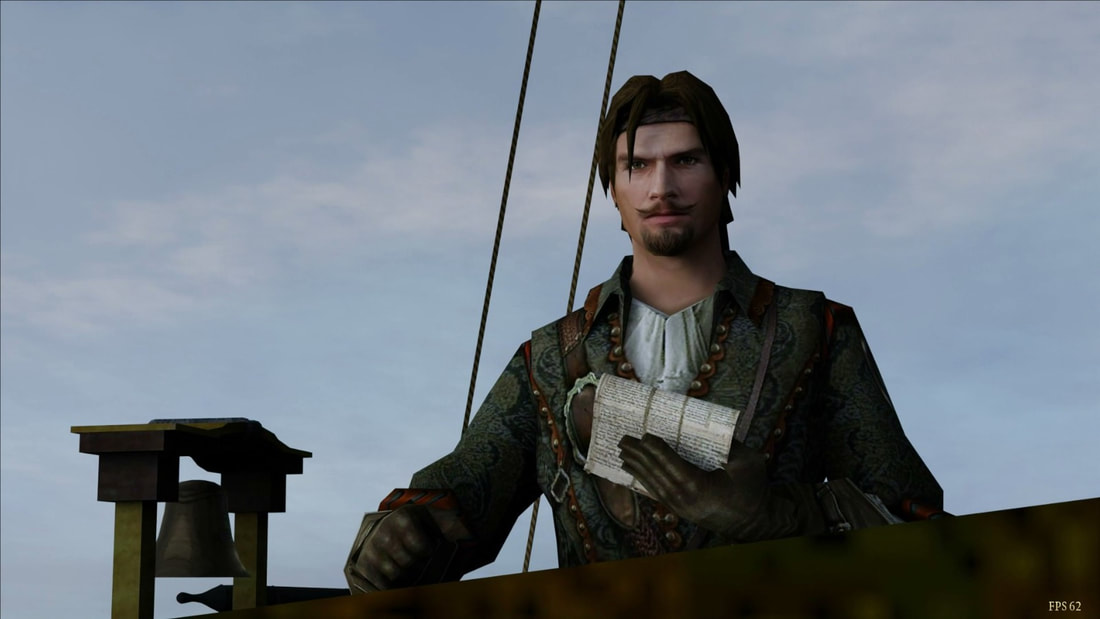

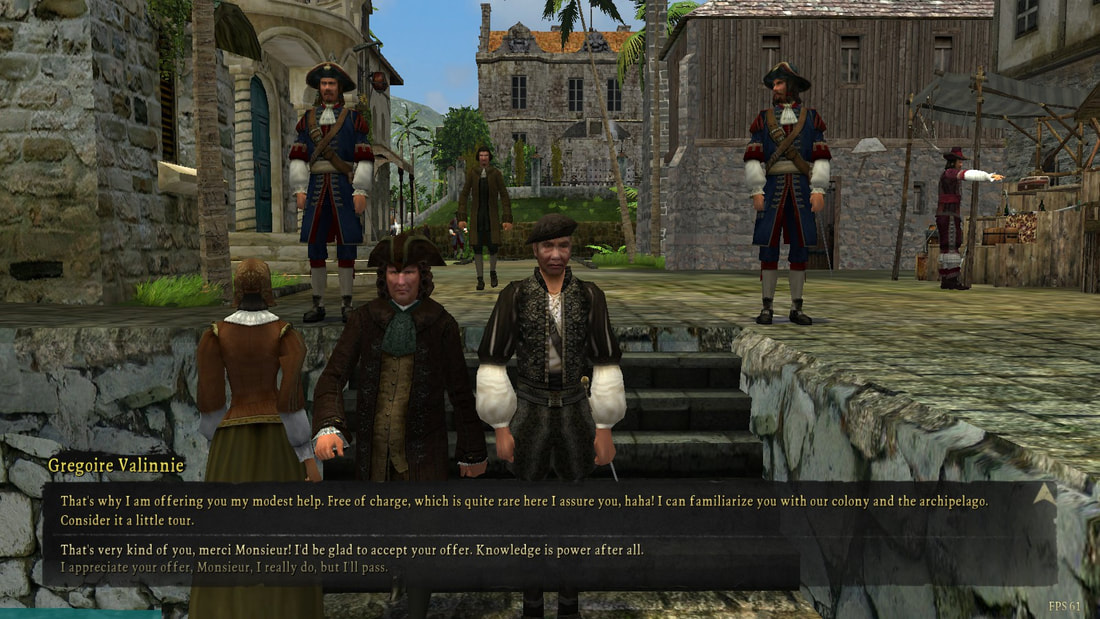



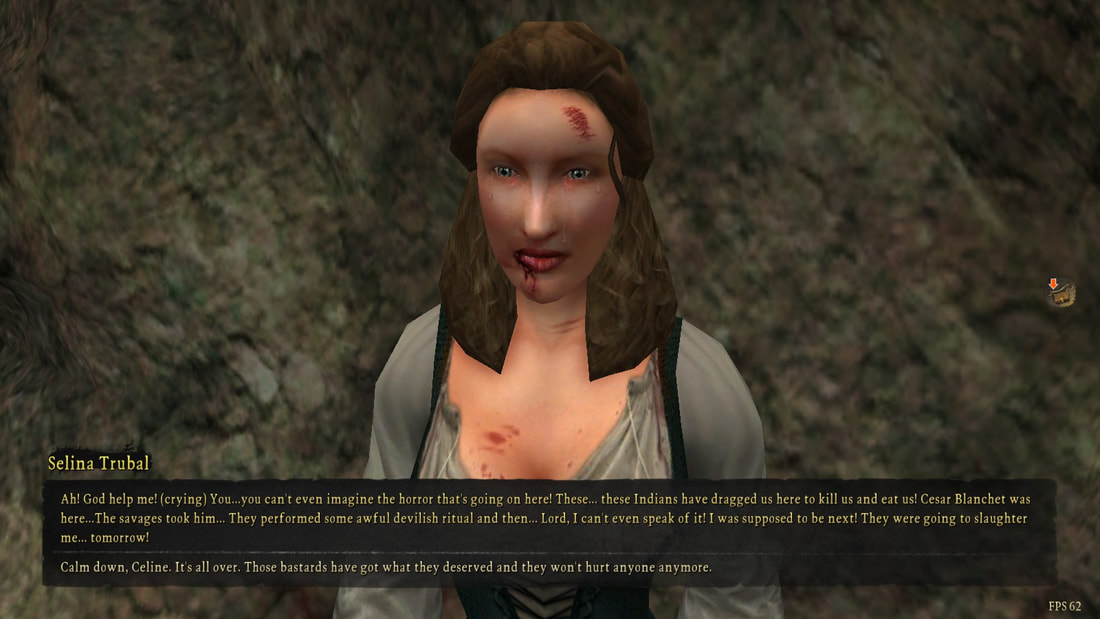

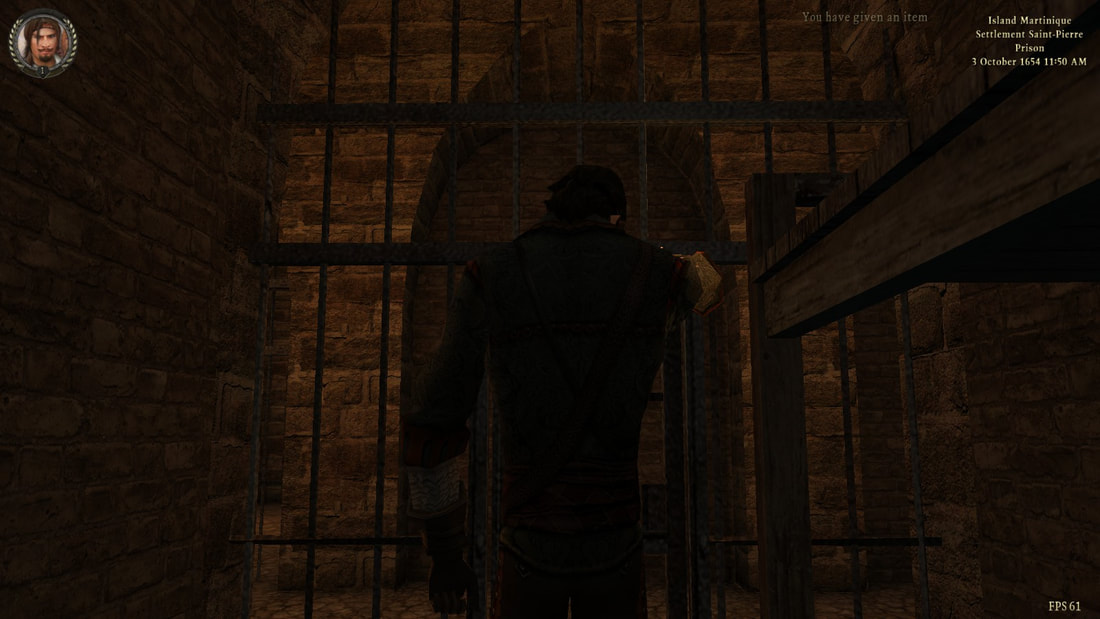

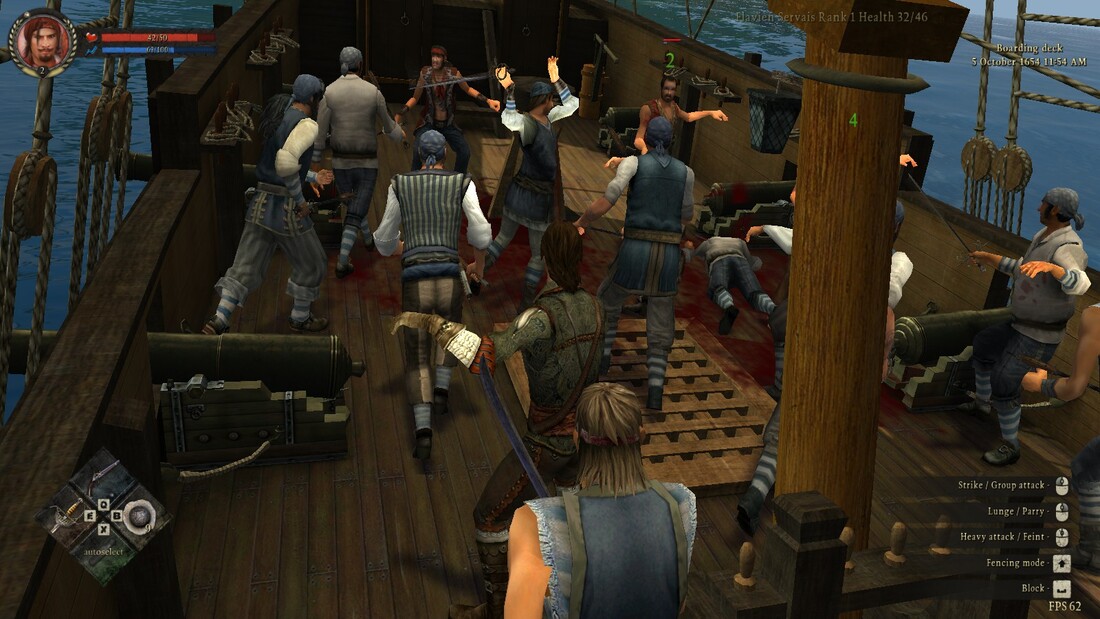

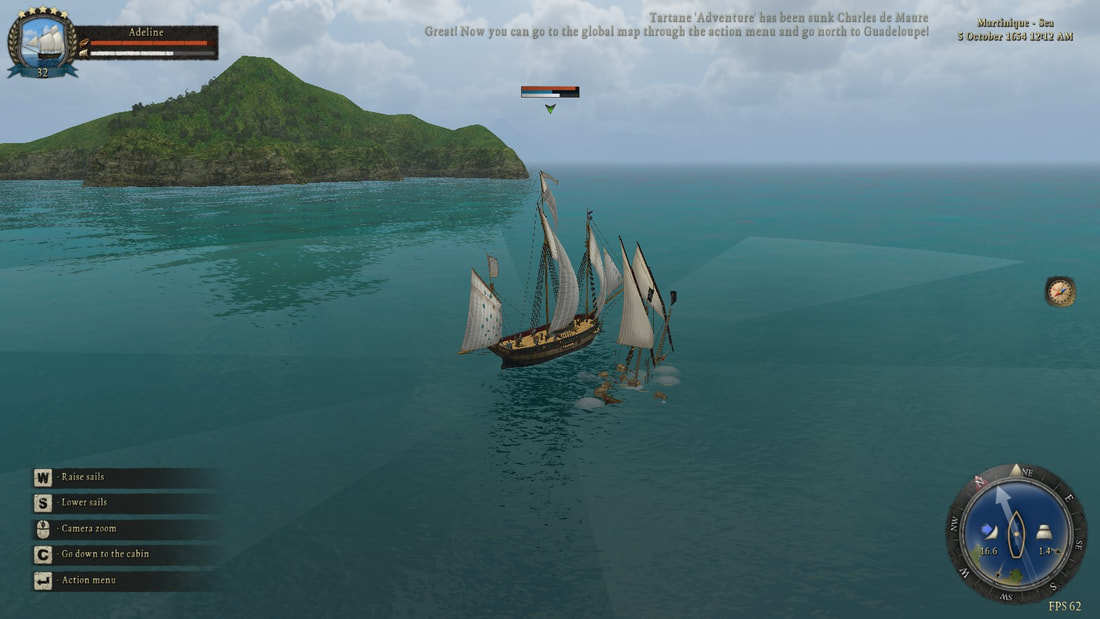
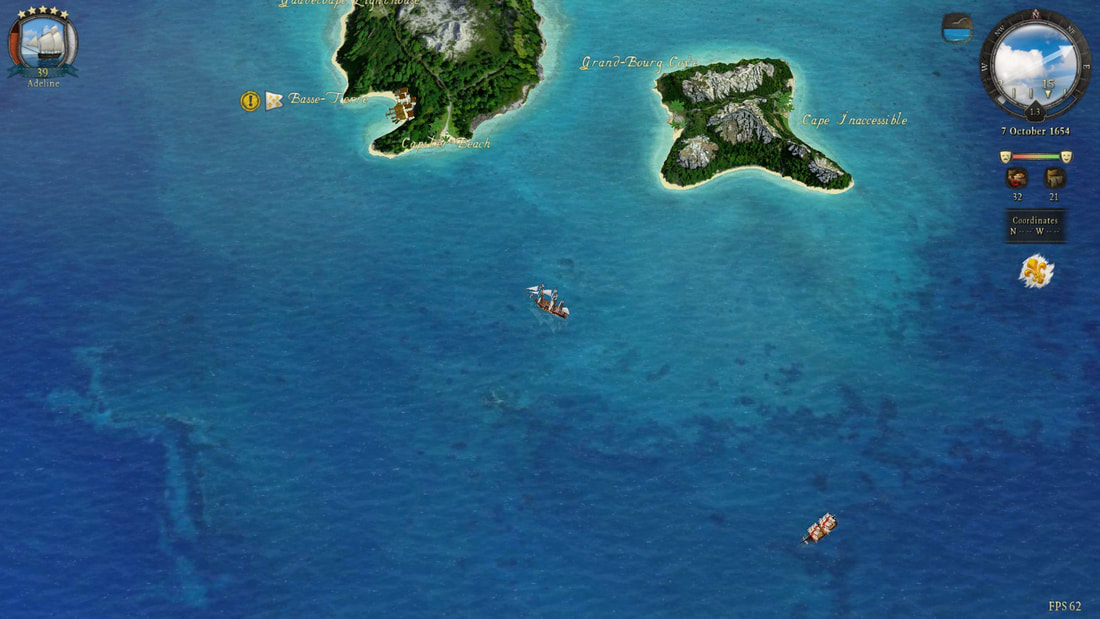
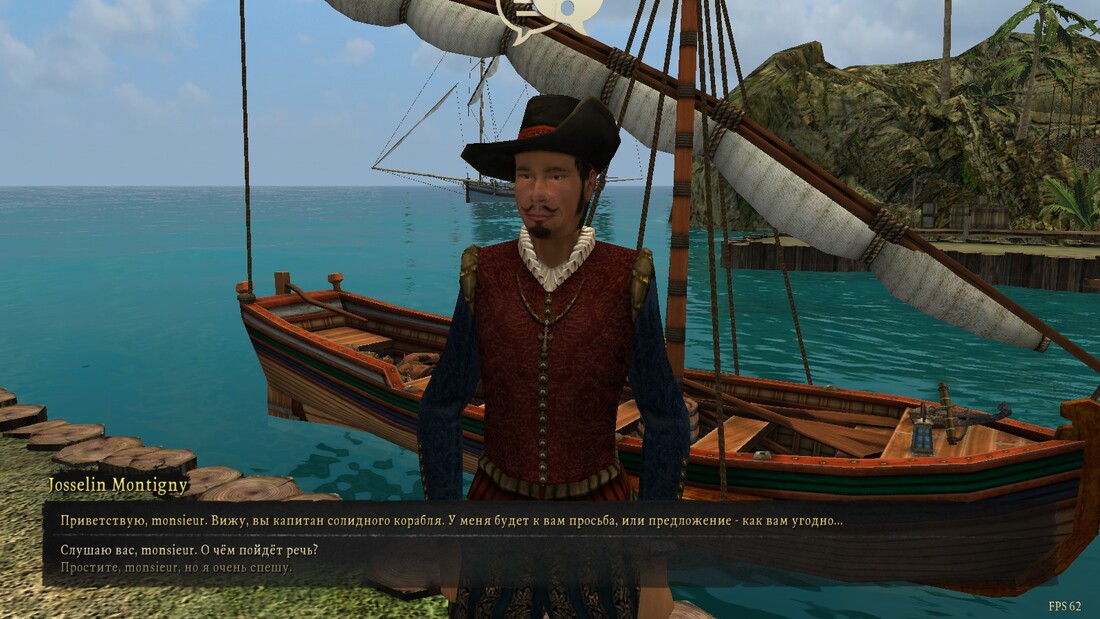
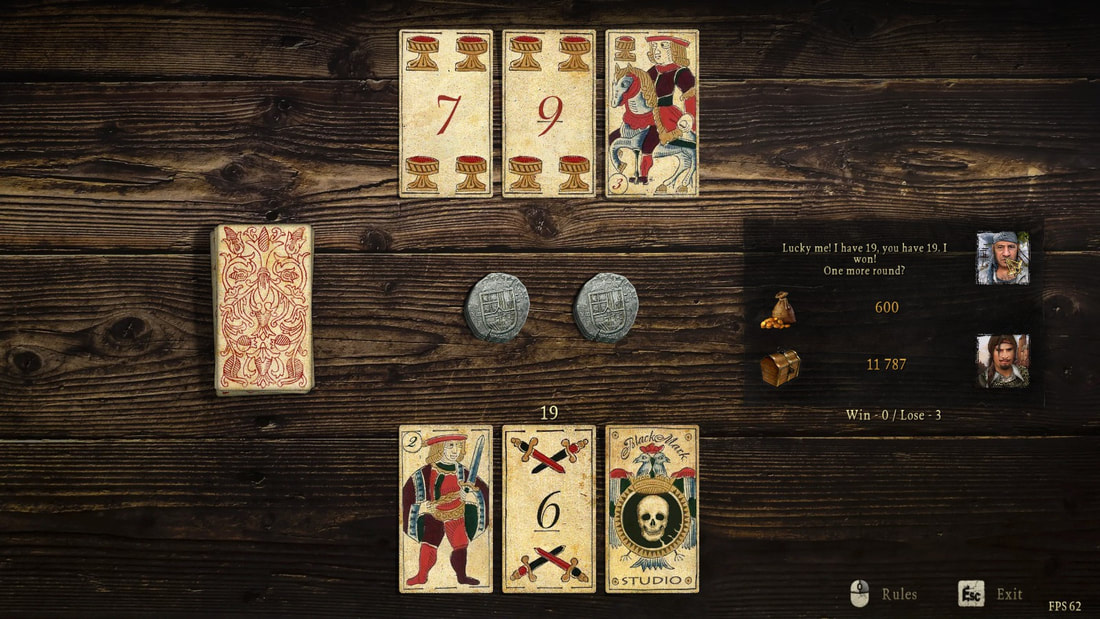
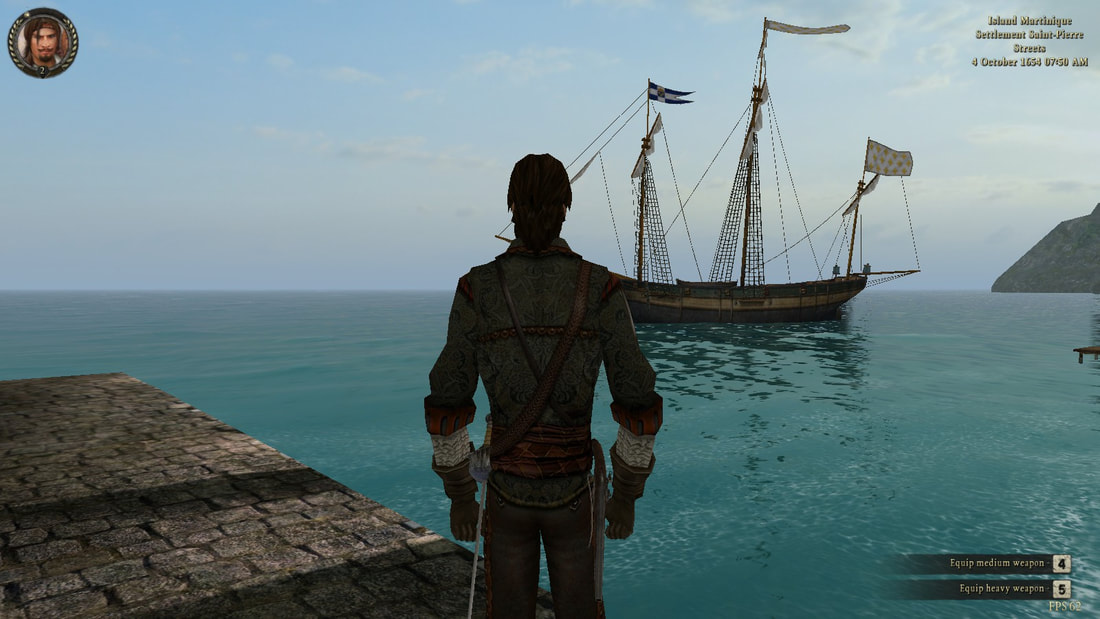



 RSS Feed
RSS Feed